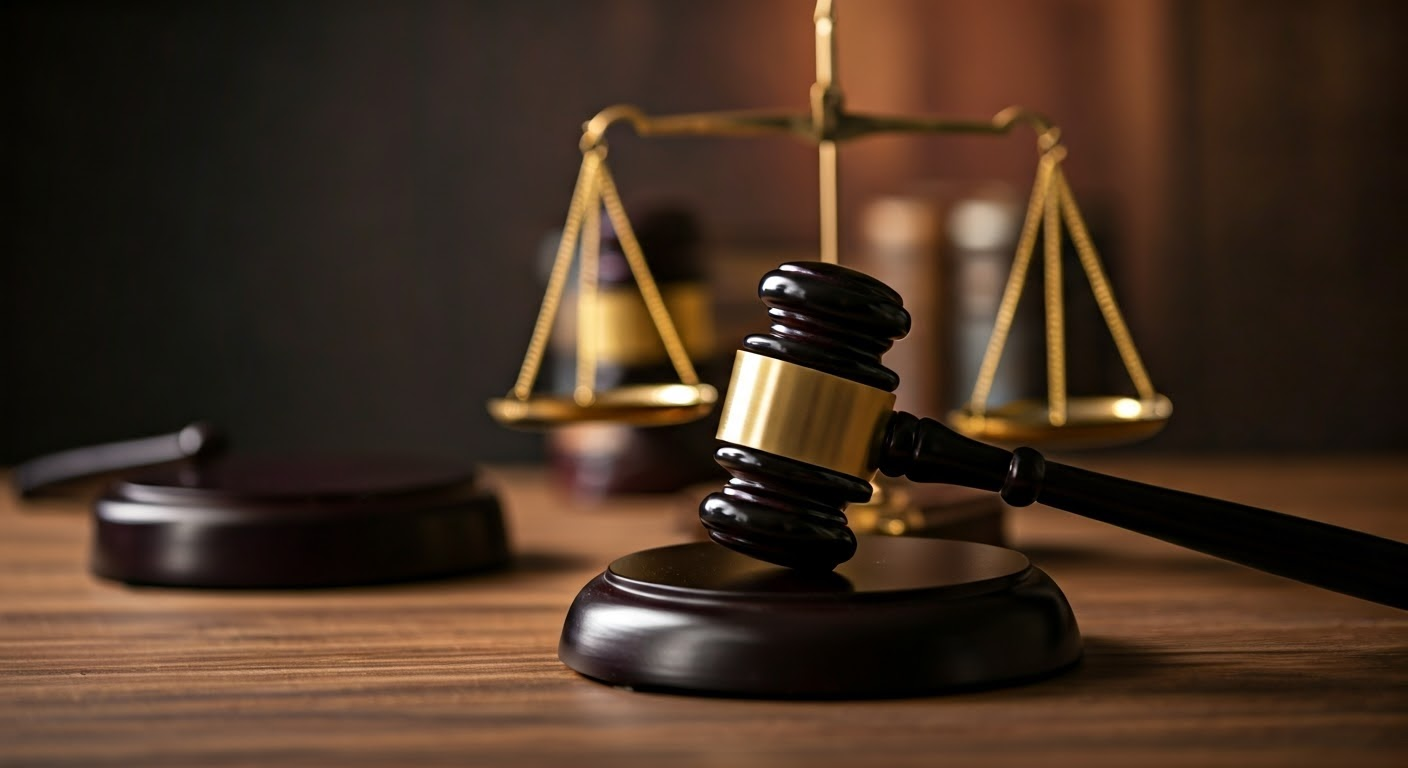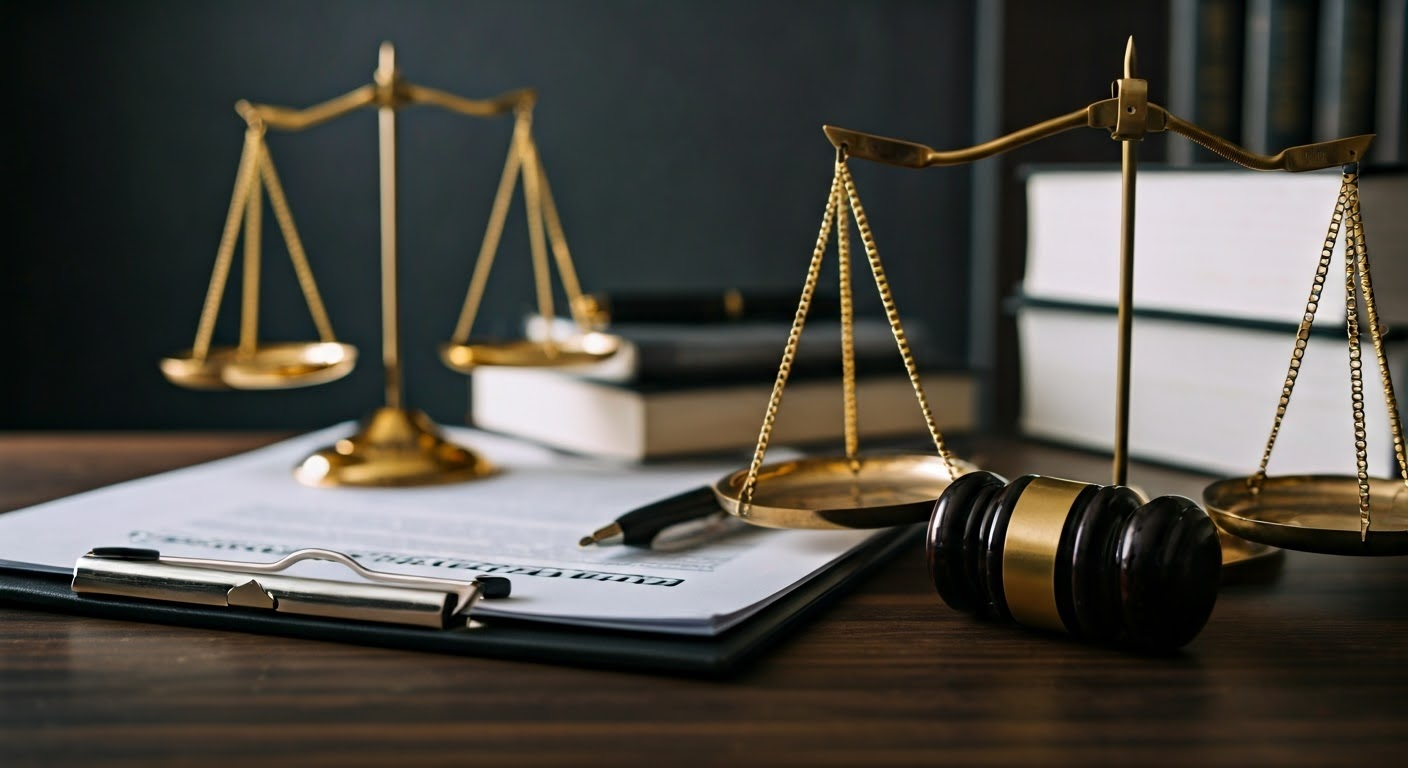
Key Highlights
- Misdemeanors are less serious than felonies but can still lead to jail time, fines, and a criminal record.
- A misdemeanor conviction can have long-term effects on employment, housing, and other aspects of your life.
- Even first-time offenders should take misdemeanor charges seriously.
- An experienced criminal defense attorney can help protect your rights and explore all possible legal options.
- Legal representation can be crucial in negotiating plea bargains, challenging evidence, and potentially having your charges reduced or dismissed.
- Consulting with a criminal defense attorney is highly recommended to understand your rights and the best course of action for your specific case.
Introduction
Facing a misdemeanor charge for the first time can feel stressful. Although it is less serious than a felony, it is still important to take it seriously and seek legal advice. You might wonder if you really need a criminal defense attorney for what seems like a small offense. Yet, even a misdemeanor conviction can lead to long-term effects.
Understanding Misdemeanor Charges

Navigating the legal system can feel overwhelming, especially if you are facing criminal charges. It is important to understand misdemeanor charges to make good choices about your defense. Misdemeanors are crimes that are less serious than felonies but more serious than simple infractions.
Whether an offense is a misdemeanor or a felony can change based on state laws and the unique details of the case. In general, misdemeanors come with less severe punishments than felonies, which could mean jail time of more than a year.
Definition and Classification in the United States
In the United States criminal justice system, crimes are divided into two main groups: felonies and misdemeanors. Both can lead to penalties, but the seriousness and long-term effects are quite different. Misdemeanors are seen as less serious offenses compared to felonies, and they usually carry lighter punishments.
One key point about misdemeanors is how they affect your criminal record. Any conviction, whether it is a felony or a misdemeanor, will go on your permanent record. This record can be seen by potential employers, landlords, and others, which might impact different areas of your life.
Even though a misdemeanor case is less serious legally, it shouldn’t be ignored. The results can still greatly affect your life.
Common Types of Misdemeanor Offenses
Misdemeanor crimes include various offenses. What counts as a misdemeanor can differ from place to place, based on local rules and criminal law. While punishments vary based on the crime and where it happened, even a misdemeanor can lead to jail time, fines, and other penalties.
Here are some common misdemeanor crimes:
- Disorderly conduct: This includes actions that disturb the peace or put public safety at risk.
- Driving under the influence (DUI): This means driving while under the influence of alcohol or drugs, which is a serious crime with tough consequences.
- Petty theft: This involves stealing items that are not worth much.
- Vandalism: This is when someone purposely damages or defaces property, which can lead to vandalism charges.
It is important to know the laws in your area, so you can understand what actions are misdemeanors and what the penalties may be.
The Role of a Misdemeanor Lawyer

Navigating a misdemeanor case can be tough, even if the charges appear small. A misdemeanor lawyer focuses on helping people accused of these crimes. They provide essential legal advice and support.
Your lawyer can help you understand the charges you face. They will also look into possible defense strategies. Their role is important in protecting your rights during the legal process.
How a Lawyer Can Help with Your Charge
Getting help from a good defense attorney can be very important if you are facing a misdemeanor charge. A lawyer knows a lot about criminal law, court rules, and the best defenses you can use. This knowledge can change the result of your case.
One main way a lawyer helps is by looking closely at what happened during your arrest. This includes collecting evidence, talking to witnesses, and checking police reports. All this is to find any mistakes in your rights or in the case against you.
During the legal process, your lawyer will stand up for you. They will make sure your rights are safe and work hard to get the best possible outcome for you. This could mean talking with the prosecution to get lower charges, finding diversion programs, or if needed, speaking for you in court.
Defending Your Case: Strategies and Approaches
An experienced criminal defense attorney will create a defense plan just for your case. This plan will need a good grasp of the law, your legal rights, and possible defenses.
Here are some defenses the attorney might use:
- Lack of Probable Cause: This means arguing that law enforcement did not have enough reasons to arrest or search you.
- Mistaken Identity: Showing proof that you were not the one who did the crime.
- Self-Defense: Claiming you acted to protect yourself or someone else from danger.
- Duress: Saying you had to commit the crime because someone threatened you.
A good defense often includes strong legal arguments, supporting evidence, and witness statements. Your attorney will carefully look at both the strong and weak points of your case. They will then create the best defense to keep your interests safe.
What is a Misdemeanor in California?
In California, misdemeanors are important in the state’s criminal justice system. They are less serious than felonies, but more serious than infractions. It’s essential to understand what a misdemeanor means in California if you have to deal with this kind of charge.
A misdemeanor is a crime that usually brings lighter penalties compared to felonies. The exact punishment can change based on the nature of the offense. In California, misdemeanors usually come with a maximum sentence of one year in county jail.
Common Types of Misdemeanors in California
California’s criminal code includes many types of crimes called misdemeanors. These range from small offenses to more serious ones. It is important to understand these differences and what could happen legally.
A Class C misdemeanor is the least serious type of misdemeanor in the state. Examples can include petty theft, disorderly conduct, or minor drug possession. The maximum penalties for Class C misdemeanors usually involve fines and, at times, some jail time.
No matter the type of misdemeanor charge, getting legal help in California is very important. An experienced attorney can help you understand the legal system and reduce the possible penalties you might face.
How Serious is a Misdemeanor in California?
Misdemeanors in California may not have the same harsh penalties as felonies. But a misdemeanor conviction can still cause long-term problems. The effects go beyond jail time and fines. They lead to “collateral consequences” that can touch many parts of your life.
After facing a misdemeanor conviction, you might struggle with job chances, housing options, and even education opportunities. Many employers, landlords, and schools check criminal history. This could make it harder for you to get what you want.
Here’s a list of possible consequences:
| Consequence | Description |
| Jail Time | Up to one year in county jail |
| Fines | Vary by offense, up to $1,000 or more |
| Probation | Court-supervised period with rules |
| Community Service | Required hours of unpaid work |
| Criminal Record | Permanent record of the conviction |
Conclusion
In conclusion, if you face a misdemeanor charge for the first time, it’s smart to think about hiring a lawyer. A good misdemeanor lawyer can guide you, create defense strategies, and represent you in a way that fits your situation. Their skill in the legal system can help lessen possible consequences and aim for the best outcome of your case. Misdemeanor charges can be complex and may impact your rights and future. Therefore, getting professional legal help is a wise choice. If you are in this situation, talking to a misdemeanor lawyer can offer important insights and support during the legal process.
Frequently Asked Questions
Is it necessary to hire a lawyer for a first-time misdemeanor?
It is smart to get help from a good lawyer, even if it’s your first misdemeanor. An experienced criminal defense lawyer can look at your case. They can also explain your legal options and find the best way to move forward.
What are the possible consequences of a misdemeanor charge?
A misdemeanor charge can have serious effects. It can result in jail time and fines. You may also get a criminal record. Other penalties could include losing your voting rights and facing civil state penalties. Additionally, you may be ineligible for some welfare benefits.
Can a misdemeanor charge be dismissed with the help of a lawyer?
A defense attorney can greatly improve your chances of winning your misdemeanor case. They can give you legal advice, help create a strong defense, and may even negotiate to dismiss or reduce your charges. This can help you avoid a misdemeanor conviction.
How does the misdemeanor process work in the United States?
If you can’t pay for a lawyer, the court will give you a public defender. This person will help you after you are charged with a crime. You will go through the criminal justice system, from your first court appearance to possibly going to trial. It’s wise to reach out to a lawyer for a free consultation. This can help you see the steps you need to take and learn about your legal options.